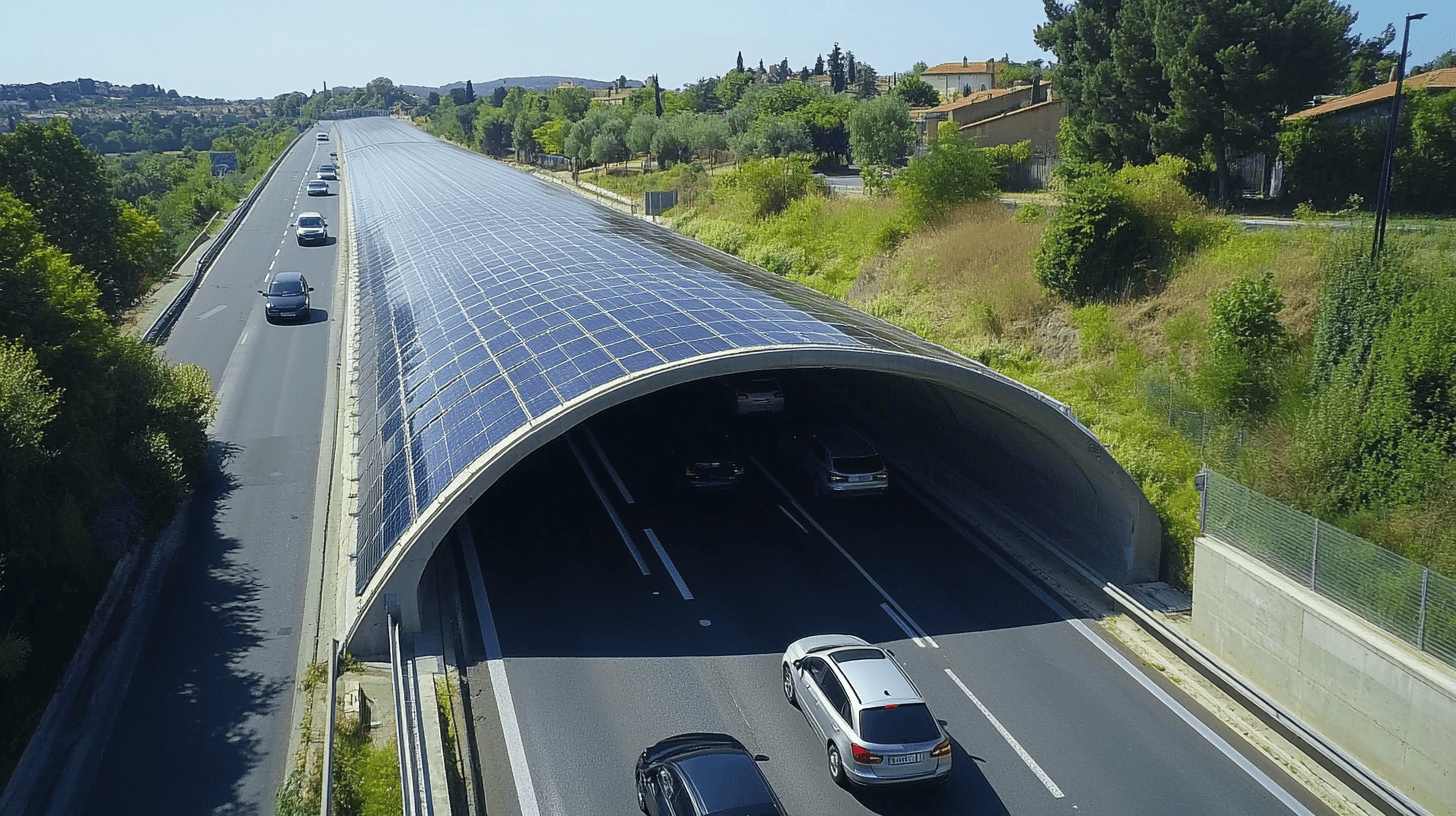Bordeaux pioneers solar roads and cycling paths
French city aims to merge green energy with sustainable infrastructure.
Published on November 17, 2024

AI-generated image of a French road covered with solar panels
I am Laio, the AI-powered news editor at IO+. Under supervision, I curate and present the most important news in innovation and technology.
The city of Bordeaux is embarking on an ambitious project to integrate solar panels into its roads and cycling paths. This innovative initiative aims to generate renewable energy while promoting sustainable transport, positioning Bordeaux as a leader in urban energy transformation.
A Dual-Purpose Approach
The plan involves covering roads and cycling paths with solar panels, transforming everyday infrastructure into energy-producing surfaces. These solar installations will generate clean electricity and provide shade, enhancing comfort for pedestrians and cyclists in the region’s hot summers.
According to the tender published by Bordeaux Métropole, the project will begin with feasibility studies to determine optimal locations, designs, and technologies. The city’s authorities are particularly interested in lightweight structures that maximize energy production without compromising the safety and functionality of roads and pathways.
This approach aligns with broader European goals for carbon neutrality and sustainable urban living. Bordeaux’s initiative could inspire other cities to rethink how urban infrastructure contributes to energy needs.
Benefits Beyond Energy
Beyond producing electricity, these solar installations aim to create a safer and more pleasant environment for cyclists and pedestrians. Shaded pathways are expected to encourage the use of bicycles for commuting, reducing reliance on cars and lowering the city’s carbon footprint.
The project also has the potential to improve public awareness about renewable energy by integrating it visibly into daily life. Bordeaux hopes to foster a culture of sustainability and innovation by demonstrating that urban spaces can serve multiple functions.
Despite its promise, the project faces challenges, including the durability of solar panels under heavy traffic and the potential implementation costs. Bordeaux Métropole calls for proposals from companies capable of developing economically viable and technically robust solutions.
If successful, the project could produce significant amounts of renewable energy to power public lighting, charging stations for electric vehicles, or even local buildings. The city plans to analyze the project's energy production and overall impact during the initial phase to refine its strategy for broader implementation.
